After the end of a long afternoon “creative session”, Alan Menken’s enthusiasm and energy are unwavering. A musical force of nature in stage and screen for decades, his excitement as he talks about “working on an opening for a new musical that I’m writing with my ‘Newsies’ team and Harvey Fierstein and Jack Feldman” and “a new song I’m doing for a Disney animated” is beyond palpable while serving as a great tease for a Menken admirer like myself.
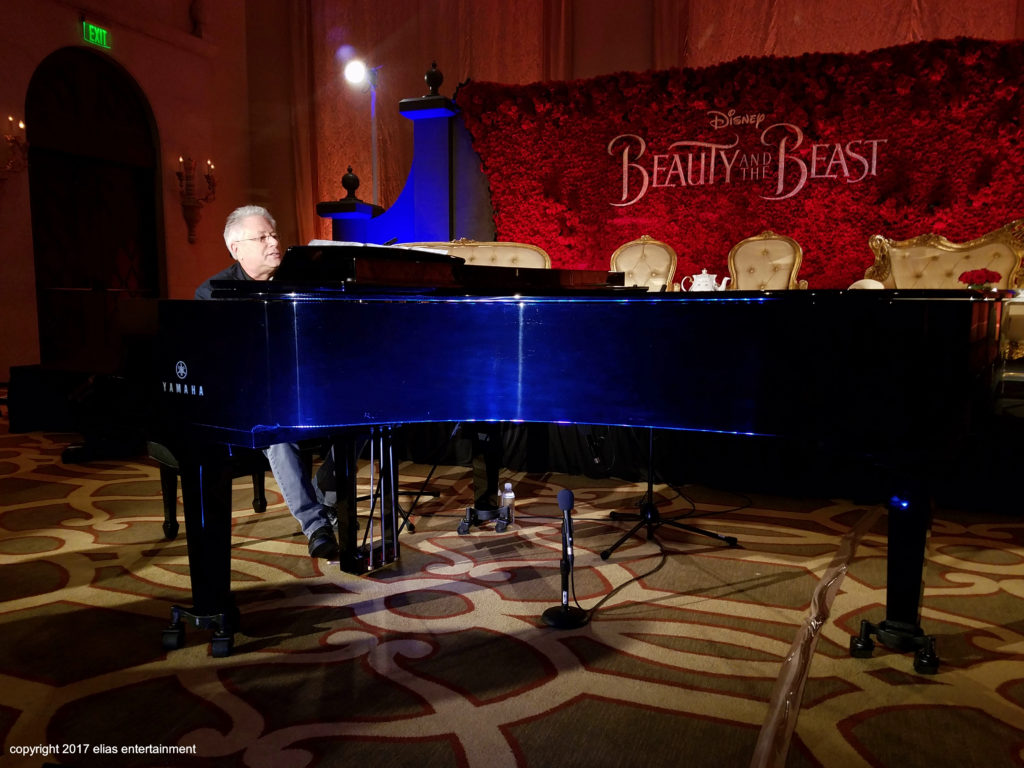
Leaping to the forefront of musical theatre and movies, Menken, along with his former writing partner Howard Ashman and current collaborator Tim Rice and others, are perhaps best known to the public for their contributions to Disney animated films. From “The Little Mermaid” to “Pocahontas” to “Aladdin” to “Beauty and the Beast” and more, Menken has eight Academy Awards and 19 Oscar nominations to his credit, with a possible 20th and 21st nomination around the corner for Disney’s live-action BEAUTY AND THE BEAST.
Already winning the Oscar for Best Original Song together with Howard Ashman for the 1991 animated “Beauty and the Beast”, as well as that for Best Original Score, Menken returns to the world of Belle and the Beast in the Bill Condon-directed live-action version (and #1 film at the box office in 2017) and, along with Tim Rice, builds on the music of the 1991 animated feature with three new songs, “Evermore”, “Days in the Sun”, and “How Does A Moment Last Forever”, the first two which are submitted for Oscar consideration.
Engaging, entertaining, thoughtful, and appreciative of his craft and his success, I spoke with Alan Menken at length about “Beauty and the Beast” and the joy of musicals . . . .
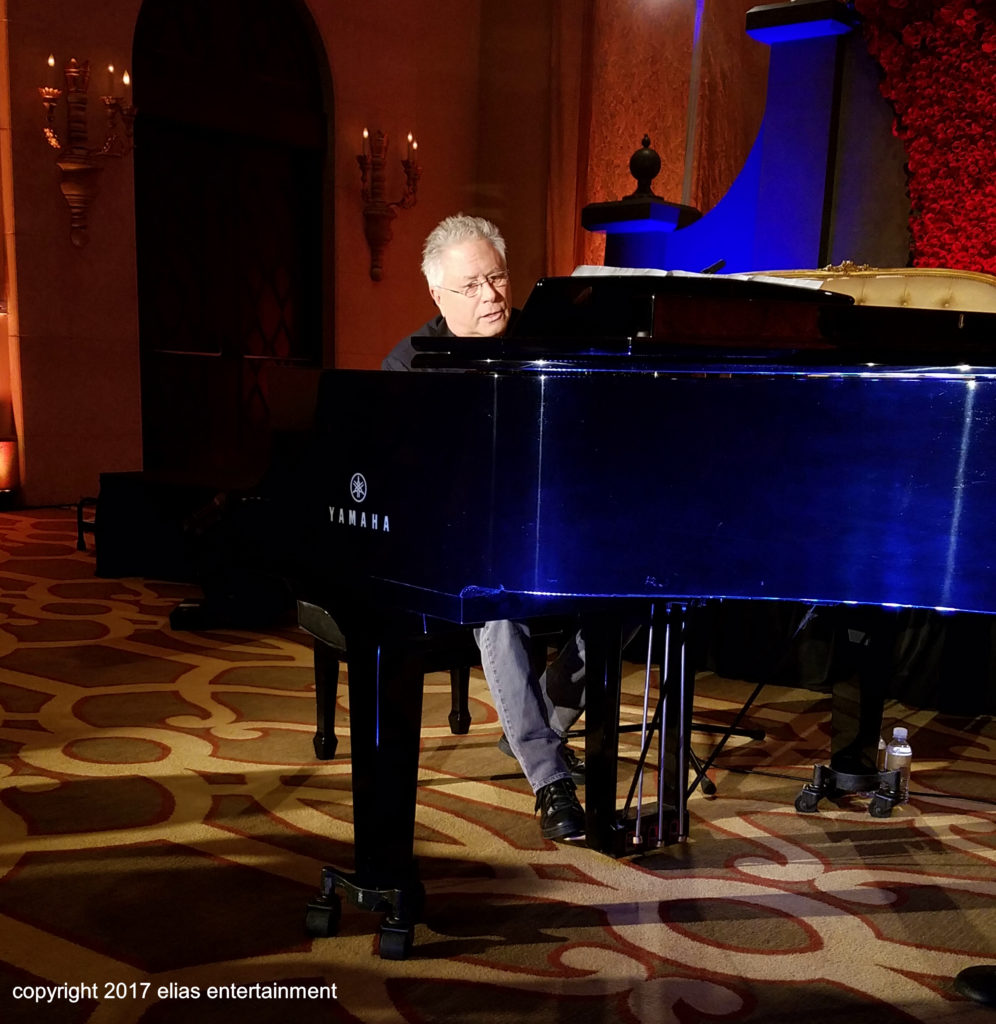
I don’t know what your secret is, Alan, but your creativity and what you have given to film, to the stage, musically, for so long, is just wonderful. The world would be a much less wonderful place without your work.
That’s very sweet. Thank you.
I have my fingers crossed that come Oscar nomination announcements that we’re going to hear “Evermore” called out as a Best Original Song nominee. It’s the most exquisite original song of the year, I think.
Oh, thank you. We’ll see.
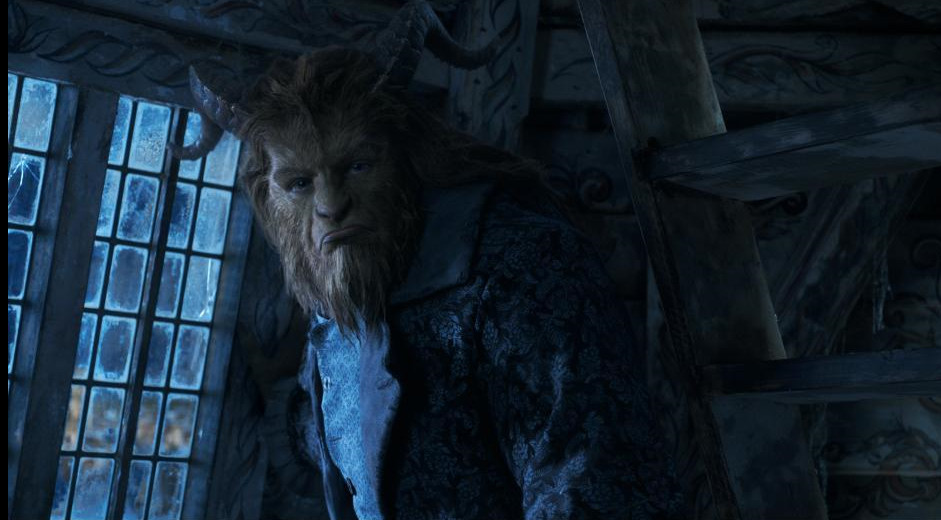
There are some other beautiful original songs this year – Kristen [Anderson-Lopez] and Robert [Lopez] did “Remember Me” for “Coco” and then we’ve got the high-octane “This is Me” for “The Greatest Showman”, but there is something that is so epic and sweeping and so deep and heartfelt in “Evermore” that it fills you and your heart as you hear it.
Knock on wood, knock on wood. I’ve allowed two of the songs to be considered, which may have been a mistake. “Evermore” and “How Does a Moment Last Forever”. So we’ll see. We will see.
An interesting thing with “How Does a Moment Last Forever” is you used that as part of, if I’m correct, “Days in the Sun.”
Yeah, there was a little piece of it in the middle of “Days in the Sun.” It threads through the movie, yeah.
I love it when there are recurring notes and reprises like that pop up throughout. During “Evermore”, is there not a moment in there when we actually hear in the background as part of the orchestration, some of the “Beauty and the Beast” theme?
Yes
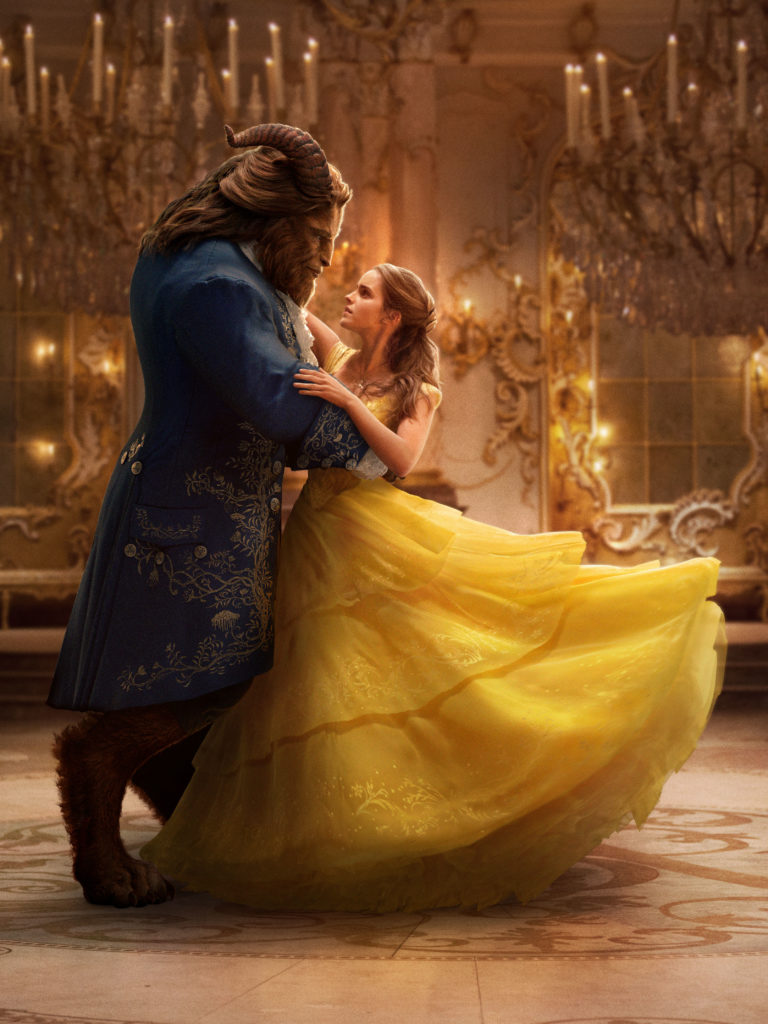
I thought so. I was listening to “Evermore” again today. I’ve listened to Josh’s [Groban] version, Dan’s [Stevens] version, and even your demo. And this is one of the great things about your songs, about your music, virtually anybody can sing it.
Awww. Thank you. [laughing]
With “Beauty and the Beast” in particular, Alan, because you already had so many songs all ready to go from the animated version, from the stage, here we are with a live-action film and you bring in three new songs. And you also bring in lyrics, Howard Ashman’s lyrics in “Gaston” and the “Beauty and the Beast” that weren’t in the ’91 film and you intersperse that. Then with all of the orchestrations, musically everything is much richer than the animated film. What kind of work and consideration goes into making that change so it’s not just a cookie cutter cut-and-paste?
You’re exactly right and that’s exactly what I was aiming for. I wanted to make sure that every arrangement would, on the one hand, keep the dramatic integrity of the moment and the song but would feel fresh and new to the listener. So in every case we made adjustments in orchestration, in arrangement, and sometimes in structure. We went and we found some lost Ashman lyrics and were able to get them into “Gaston” and, of course, what was most magical was finding that alternate section of “Beauty and the Beast” that we had cut and now having that at the end of the movie. That was really, to me, that’s the heart and soul. It was Howard who originally conceived so much of the movie, so to be able to get that in was very emotional and very special.
What is your writing process? Because you had worked with Howard for so long, now you’re working with Tim Rice, did your actual process change in the writing of these three new songs for the live-action movie?
Well, yeah. First of all, my process changed, first because Tim and I, of course, live far away from each other and when we are in the same place it’s for a limited amount of time. And yes, the process definitely was different in many, many respects. And the process of working with Tim is always different than when I worked with Howard. Of course, I have so many different collaborators and there’s subtle differences with all of them. But I think the most dramatic difference is with Tim, partly because he lives in England and partly because he loves music first. I love working that way. And he’s just “Tim.” Tim Rice is such a unique artist and a wonderful man and it’s so much heart in Tim and so much in his lyric-writing. I think it combines with Howard but it’s so different from Howard’s as well.
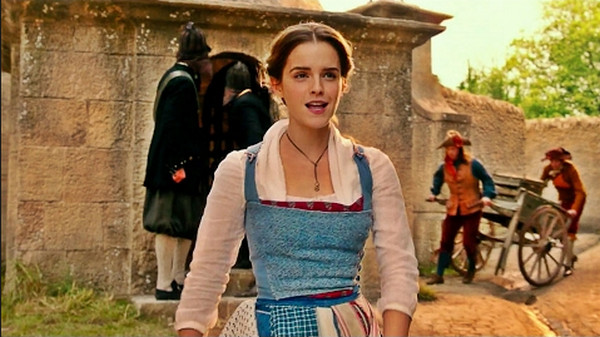
What’s so beautiful is that, even though the styles may be different, everything, when it comes together in the film, everything is synergistic, it is all seamless, it all feels as one.
I credit Bill Condon with a lot of that. He was obviously the director and one of the writers and he’s the best kind of micro-manager you could want. He’s involved with every single choice and every moment and it’s very much Bill Condon’s film. That’s what allowed me, I think, to come back to it successfully in having someone else coming in there with their own ideas and their own intention of how they want to change the story or explore different aspects of the story. That’s what brings it back to life for me.
When you’re composing and writing songs for “Beauty and the Beast” or with anything, what comes first, the music, the lyrics?
Well, as I said, generally with Tim Rice, music comes first and a song idea. With “Evermore”, one of the things we had to consider was that we had a song in the Broadway show of “Beauty and the Beast” that ends Act One, and it’s called “If I Can’t Love Her.” That’s a song that the Beast sings when he’s driven Belle away out of anger. I love that song. It’s one of my favorite songs that I’ve ever written with Tim Rice. I actually lobbied to try to have it in the movie, and Bill said, “I really think in the movie, rather than having it be the moment where the Beast drives Belle away out of his anger, we should do the song at the moment where he lets Belle go because he knows he loves her.” I just had to sort of go, “Okay, that’s a new song!” Gonna let the other one go and substitute that one instead. It’s a total synergy of how you structure a film and the book and the vocabulary of the book and the song.
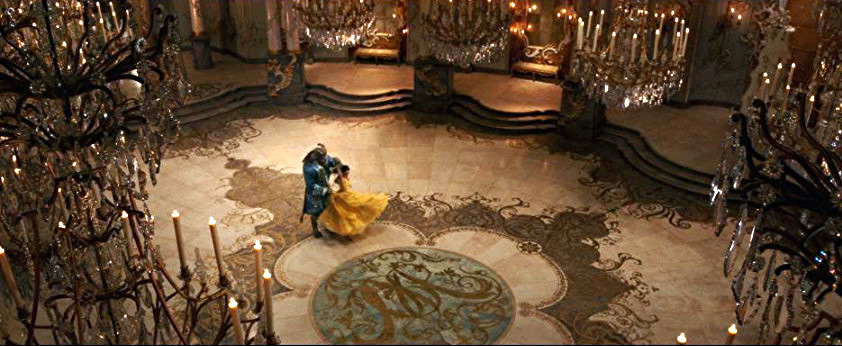
When you and Tim are creating, do you, because I’ve spoken with many composers about this – Alexandre Desplat, for example, works on his orchestrations while he’s actually composing – do you work on orchestrations?
No. It’s a very different process between writing songs, or a song score, to the underscore. And one is dramaturgically in the center of creating the base of the work, not only the music but also the very structure of the work. I work on piano so I can easily rewrite and rewrite and rewrite and re-demo, and you just keep at that level. Luckily I’m a good pianist so you can hear and feel the arrangement through those demos. Often when we’re doing an underscore, and there you’re dealing with a moment with the director where the director has often had a piece of temp music that they’ve been working with so you have a sense of exactly the tone the director wants. You’re much more likely to want to say, “Okay, I’m gonna put in a stream pad here or something to give”‘ – we call them mock-ups – before you go to an actual orchestra. You have synthesizers and you are able to thread in a mock-up arrangement.
You obviously knew Dan Stevens would be performing “Evermore” when you wrote the song. Does that come into play for you, when you know who is going to be performing? Is that ever a consideration?
I really try not to have that come into play. What I want to do is write for the character and basically tell the actor, “Okay, now hit those notes!” or, “You know to put it this way!”. We certainly think about the character and the moment only, first. Then if there’s a problem, then I can consider maybe workarounds, but not at the basic inception of the song.
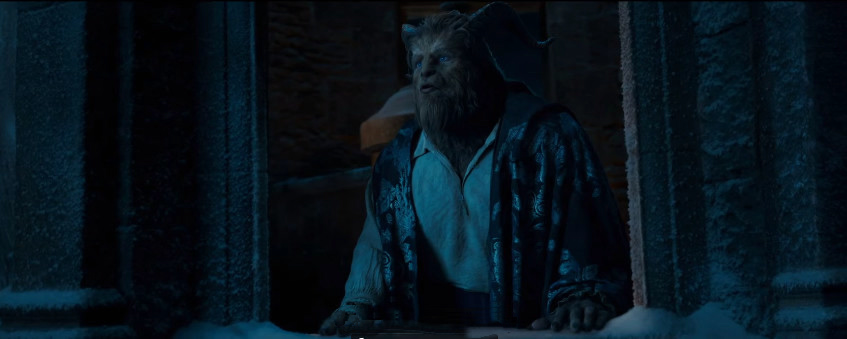
As I said earlier, that’s one of the great things of “Evermore” because I’ve heard Josh’s version, Dan’s version, and your demo version and it works; the song works for all three of you and you’re all in different vocal ranges.
Right. I’ve often said as a songwriter and a writer of musicals, I think of myself as an architect. I will design a structure. Now after the architect has decided the structure – you may have a marble entrance, you might decide to make the entrance stone, you might decide to make it wood, but the basic structure is what the architect comes up with. I’m coming up with a basic harmonic and melodic structure for a song, but then I let it out of my hands and it goes into the hands of the writers and other artists and they do with it as they think is appropriate. And I really try to at that point let go of them and trust those artists. And then I’ll come back and give my opinion, but you want people to feel invested in the song like it’s their own, and not be overly controlled.
How involved were you with the overture of the film? That overture, it is absolutely exquisite, the way every element is brought in.
Michael Kosarin. My longtime musical director Michael Kosarin, fantastic conductor, fantastic vocal arranger. I’ve been working with him since “Hunchback of Notre Dame.” I was thrilled when I heard what he did. And you know that’s not uncommon, like for a Broadway show. I know I have my themes for songs but I often will allow the orchestrator or musical director to come up with a suite of theme music and I’ll approve it, but I love when my music team acts as an extension of me. I think it just enriches the whole project.
Every bit of music within “Beauty and the Beast” is so rich. You feel the scope and magnitude of the film. It’s so elevated beyond the animated film. For me, it harkens to something by Herrmann or Steiner. I can honestly say that the songs, the music, the lyrics, everything in “Beauty and the Beast”, out of all the things you’ve done, “Evermore” is definitely one of my all-time favorites.
Thank you. They’re the best, that’s wonderful, thank you. I’m so glad you liked it. It’s amazing how culturally things have changed. Now musicals really are treated as high art as very much a part of our cultural heritage.
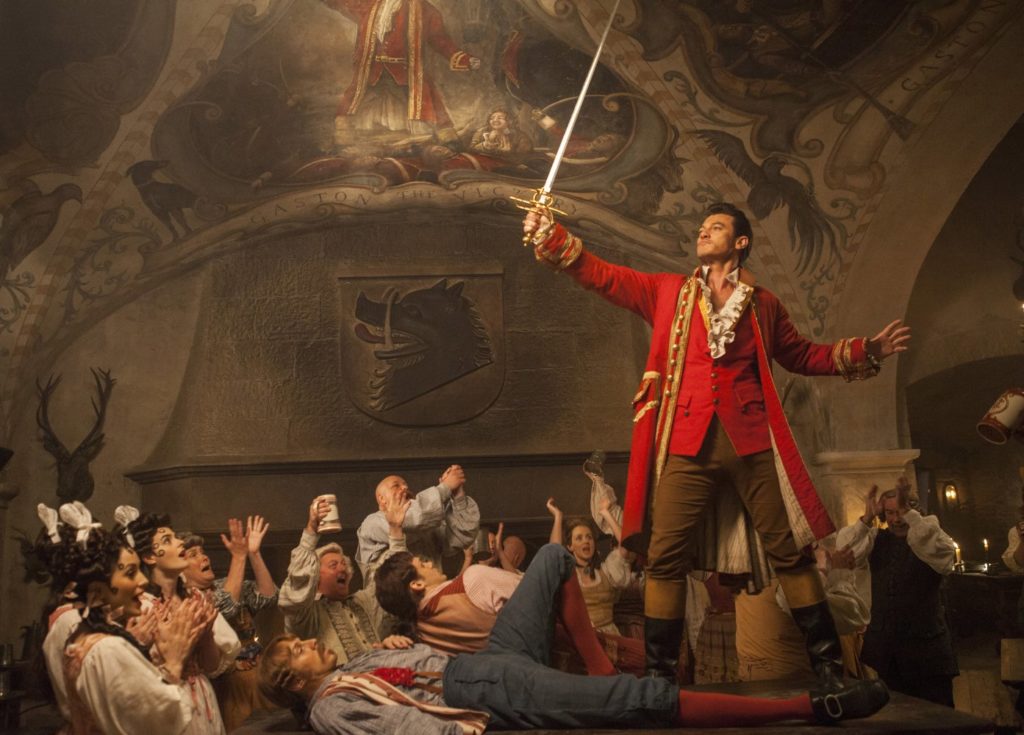
After Oliver!, that was essentially the last “musical” that we ‘d had for many years until Disney started with the animated spectacles like “The Little Mermaid.”
And of course Oliver!, remember, was basically transferred from stage. “Gigi” was written for film. I’m trying to think what other ones. “Singin’ in the Rain”, but that’s earlier. When I did “Newsies” I don’t think there’d been a live action film musical in a generation.
No, they kind of disappeared and I’m so thrilled to see them again. I do think Disney has had a lot to do with that through the animated films.
They have. Absolutely. It’s an amazing springboard when they first brought people like Howard and me to work on the animated musicals. Then they made a decision to come to Broadway and, of course, now Disney Theatrical is probably the biggest producer on Broadway, but for years they wouldn’t go near [musicals]. And then sort of closing that circle. Now you go from animated to stage and stage back to film and very possibly film back to stage again, in a circle. You look now at Benj Pasek and Justin Paul. I’ve known these boys since they were at University of Michigan as young theater writers. Their crossover and Lin-Manuel Miranda and Bobby Lopez, that whole generation that’s bringing musical theater really to the fore. I’ve known all of them since they were boys. It’s ironic that there’s a real connection of the passing of the flame.
Well, your flame isn’t going anywhere yet, Alan!
No, I’m burnin’! I’m burnin’ here, Debbie! [laughing]
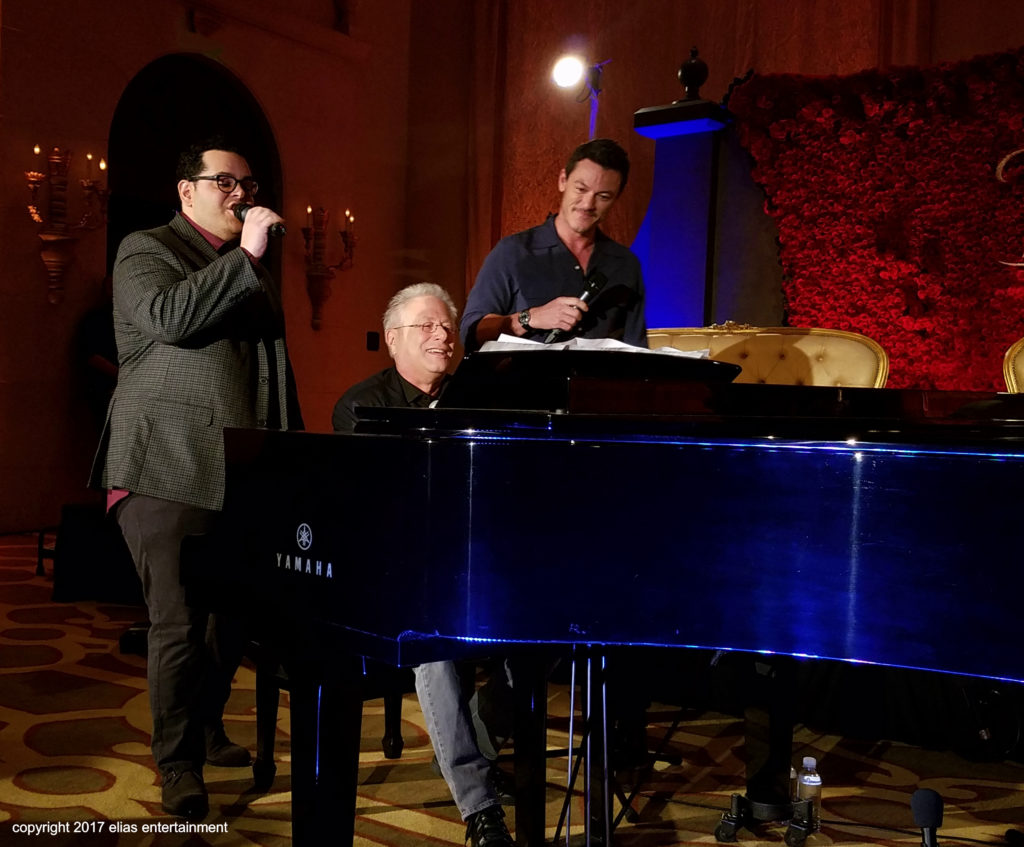
You have such a great relationship with Disney. What is the magic for you of working with Disney on these projects?
Well, it’s a company, it is ‘the” company that has probably the deepest commitment over time to musicals and it’s a much more unbroken line than at any other studio. MGM musicals are still a tradition at Sony, because Sony acquired MGM, and Paramount, et cetera, and other studios do musicals. Universal. But Disney – the flame never went out there. Basically, you have Roy [Disney] going right to [Michael] Eisner and [Jeffrey] Katzenberg and [Bob] Iger and where we are now. There’s the sense of history that everyone feels there. That doesn’t mean that it doesn’t take work to keep that sense alive, because it does, but people have to be reminded that it’s still important, that it’s still there. It’s really thanks to audiences who continually reminded me that, “Hey, this is what we want”, so thank God for them.
How excited are you to be a part of the film that came out to be the number one box office film of the year worldwide?
Very. And I think the highest grossing musical of all time. It’s nice. It’s very nice.
Now we’re in awards season again. You are no stranger to awards season. You’ve been here before. Does it ever get old for you?
No, it doesn’t get old. What I notice of course, as I said earlier a few minutes ago talking about these younger writers coming up, is that there’s a new generation that’s coming up that’s doing amazing work. On the one hand I nourish and encourage and even mentor a lot of those artists, and on the other hand, I’m still there doing it. It’s a very interesting sensation. I definitely don’t feel like the kid who was coming from “Little Shop of Horrors” and off-Broadway to the Oscars where we had “Little Mermaid”. I’m older and very aware of that and you watch the business evolve and it continues to evolve and evolve, and it’s great to remain a part of it. But I have a different role now in the business and it’s gratifying.
So, what is the greatest gift, because you keep doing this, your flame is still burning bright, so what is the greatest gift that composing, songwriting, gives to you that keeps you going, that keeps you going, that keeps that flame burning?
Well, I love it. I’m aware that things I’ve created have a life of their own, a lot of them, out in the world, a pretty extraordinary amount of them. I delight when I’m able to write something that I think has power to it and has emotion to it and where there was nothing, now there’s a song. Or where there was nothing, now there’s a musical. That’s never stopped being a wonder to me and the older I get the more I appreciate still being able to do it, and also on many levels now I’m doing it at another level and I love that. It’s a challenge, it’s exciting, and it’s also, frankly, the best way of hanging out with friends. I have such great relationships with my collaborators and directors and book writers and it’s really deep within the fabric of my life. If I wasn’t doing this I’m not sure what I’d be doing.
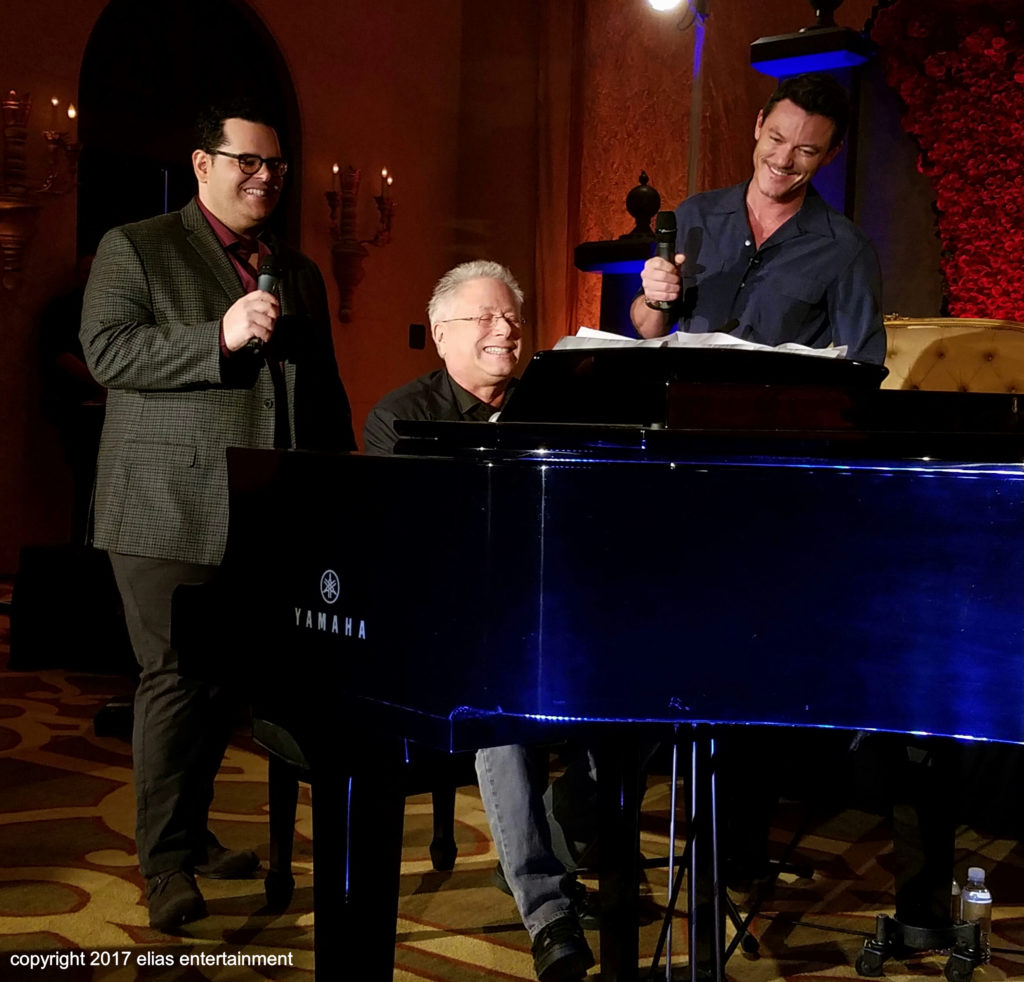
When you say, “hanging out with friends” I immediately flash back to the junket and press conference in L.A. for “Beauty and the Beast” last year where you were performing and Luke [Evans] and Josh [Gad] came out and the three of you were at the piano. That was amazing. It felt like we were back in the 1950’s and everyone was gathered around the piano at a posh New York penthouse just hanging out.
Aw, thanks. It was fun and, of course, Josh comes from musical theater. Luke may as well come from musical theater because he loves it so much.
And he’s so good.
Oh, he’s so good! Somebody’s gonna have to grab him and do a Broadway show or West End show with him. There’s this sort of irrepressible fun and joy that comes from playing at the piano and having them standing there and singing with me and, of course, as I get older people place more importance on having me there personally. We obviously lose sight of who we are in the world often, because it’s not our job necessarily, if you are healthy at least, you shouldn’t be walking around conscious of that. But it does remind you that it’s sort of a shortcut to an intimacy, which is, they really are invested in what I do and who I am, and it certainly makes it such a joy to be able to go and do events and share those moments.
Alan, I am so thrilled that you came back for the live-action version. I am so thrilled with the new songs. “Evermore” will remain one of my all-time favorites. But, I can’t wait to see what you do next!
Thank you. Well, we’re doing “Aladdin” now, the movie of “Aladdin”. We have a couple of new songs for that that I’m really excited about.
Is that another bringing from the stage and now adding more for the live-action?
No. It’s all from animated to live-action just like “Beauty and the Beast.” Not much of what was purely in the stage production is in the movie. It’s really coming from the animated score and I think you know, but my collaborators are Pasek and Paul. They’re my lyricists on “Aladdin.” And had a great time with them. It was so much fun.
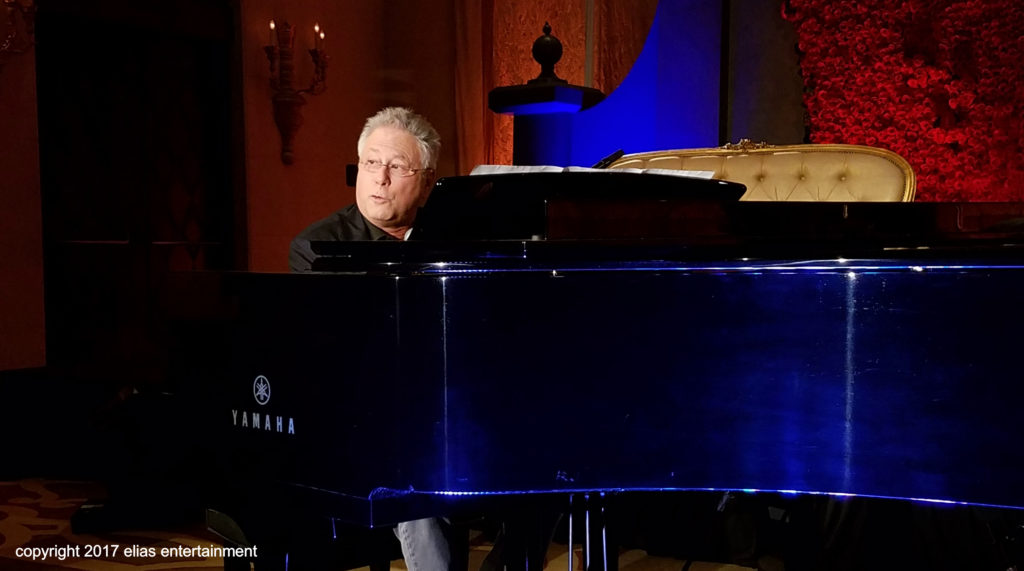
Do you ever not have a great time, Alan?
[chuckling] There are experiences that are not as great as others, but no one’s gonna talk about them. Sometimes those things are hits, sometimes those things are things you don’t really know much about, but in general it’s all about not getting attached to those difficulties and just keeping your eye on what your job is, which is telling a story and creating a sense of involvement and emotional connection in an audience.
One more question before I let you go, Alan. I’m curious, what did you personally take away from this experience of “Beauty and the Beast” live-action. You’ve made the whole journey, full circle with this, but you breathe new life, you bring in new songs, you really reinvigorate the romanticism and the grandeur of this love story, so what do you take away from this?
Much of what I take away and what people who are filmmakers take away is behind the scenes as much or more than what’s onscreen. I take away a lot of new relationships that are great and really valuable. Bill Condon, probably number one, a man named Chris Benstead who was my “music guy” in London, and Matt Sullivan and of course, Michael Kosarin, and the studios and the musicians and the actors. Oh my god! Getting to spend time with Emma Thompson or Emma Watson and Ian McKellen and down the line, Stanley Tucci and Ewan McGregor and Luke Evans. I mean, it’s an embarrassment of riches. Oh my god, Kevin Kline! And of course, Dan Stevens and Josh Gad, and it goes on and on and on. Audra McDonald. So you are just walking away with this sense of having really spent months with the most extraordinary talent on earth. It’s great and then the movie comes out and it exceeds expectations to say the least, and the expectations were not small, but it exceeded them, so it’s a great feeling of having grown and experienced something new in life. It’s always the best.
by debbie elias, interview 01/10/2018












